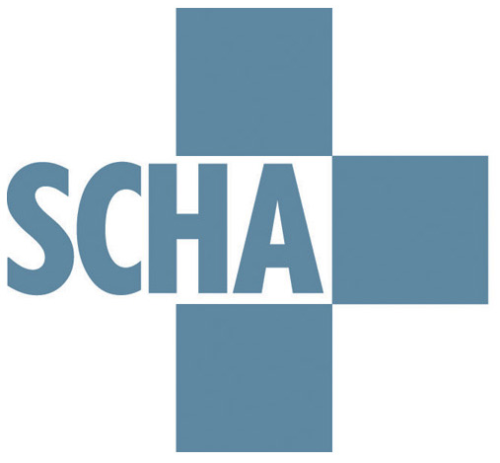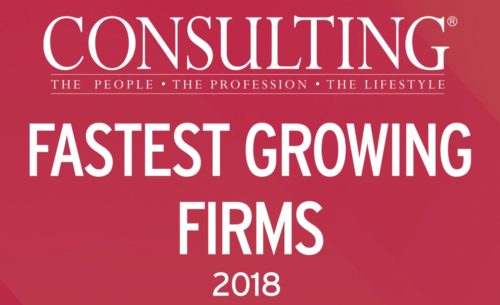KCG partnered with MUSC Health to create and maintain a comprehensive accountability process. Recently, we interviewed MUSC Health’s System Chief Operating Officer, Tom Crawford, to discuss the organization’s new procedures. Read or watch the conversation below, or see our one-page Engagement at a Glance and learn more about the project HERE.
Conversation has been edited for length and clarity
Chrissie Hamilton: Hi Tom, it’s great to see you today.
Tom Crawford: It’s good to see you as well.
Chrissie: Let me just do a quick intro before we jump in. Tom Crawford is the System Chief Operating Officer at MUSC Health, which is the clinical delivery arm of the Medical University of South Carolina. I’ve asked Tom to join me today to talk a little bit about a project that KCG worked on with the health system to establish an accountability process to track performance and progress on strategic and operational efforts their clinical leaders are working on.
Tom, are you ready to jump in to just a couple questions?
Tom: I’m ready and I’m looking forward to it.
Chrissie: Great! So, MUSC has grown exponentially over the last couple of years, which really prompted this need to establish a more formal accountability process. As a member of the executive team, what do you view as the biggest wins for the health system that have come from these regular accountability meetings?
Tom: I think it’s twofold. I believe communication has been enhanced dramatically and we have grown. We’ve grown exponentially, but not just through acquisition. We’ve grown through performance, setting expectations, and then helping our leaders achieve what our expectations are.
I lead what we call ‘collaborative ICCE’ [Integrated Centers for Clinical Excellence]. I’m dependent upon other patient-focused ICCE or patient-facing ICCE growing so that we can sustain our services. Accountability has enhanced communication dramatically and it has enhanced performance dramatically.
It’s not just about holding leaders accountable, it’s bi-directional. They’re holding us accountable to make sure that we’re providing them what they need to be successful.
Chrissie: I know you have a background in community hospitals, and even stepped in as the Interim CEO of one of the regional hospitals that MUSC has while the health system was recruiting a new leader. What value do you think the accountability process has brought to the regional hospitals that MUSC has acquired over the last couple years?
Tom: What I found was actually really interesting. I went from one side of the table to the other side of the table. Instead of sitting there and reviewing the presentation that the CEO provides to Team System Council, which is our senior leadership group for the health system, I was the one doing the presenting.
I think it helps you hyper focus on the things that are important and what will drive the performance of each division. Then, through the work with Knowledge Capital Group we were able to integrate better our ICCEs and our divisions to help support the work at the community level as well.
It has been a phenomenal process and seeing both sides of the equation. You don’t get caught up in what’s not important and you stay laser focused on the things that will dramatically improve the care that you’re delivering to the communities that you serve.
Chrissie: So vice versa, what lessons you learned that the clinical leaders could learn from the teams in the community setting? what best practices can they learn from their peers in the community that they can then apply in the larger academic setting?
Tom: I’ll take it to a different level. What’s interesting to me is that I believe Knowledge Capital has created a learning lab for us. I like the way you frame the question, because it’s just not the academic institution pushing out “here’s best practice.” We’re learning from the community hospitals too.
So yesterday in a meeting that I was a part of, we had all of our leaders talk about their Opportunities for Improvement, and the way that they were going to tactically address them. What came up out of our Florence division, is a best practice on how to decrease length to stay. They are working hand in glove with a hospitalist group, having 5:30 meetings every evening, and through this, removing obstacles and setting the tone.
My challenge for the group was to take this best practice coming out of the community division and figure out how to take the tertiary reporting academic campus and break it down into four academic hospitals. Looking at the four hospitals, they’re about the same size as our flagship in Florence. Therefore, how do we learn from their success and implement it on the academic side of the equation?
We’re very fortunate to have this learning lab where a best practice could be captured anywhere in our health system. Through the enhanced communication we can take that lesson learned and apply it to the rest of the system.
Chrissie: I think it all goes back to communication, which is what you brought up in your very first comment, and that’s what I think has been so impressive. Leaders are getting out to the community setting, and vice versa, the leaders are coming from the community setting to Charleston and talking about what’s working well and what we can be doing better.
Tom: Yes, and what Knowledge Capital Group did for us, and helped us refine through meetings, was to start with a balanced scorecard. The expectations are absolutely crystal clear at a division level and an ICCE level so that they can go out and improve performance.
Also, it has been very important for us is to make sure that everyone’s in attendance. We’re investing a lot in the structure, just by the number of people we have in a room. But if you don’t do that, then you don’t enhance communication, you don’t create a learning lab, and you don’t enhance your systemic performance.
I’m just happy to report that we have enhanced our systemic performance and we are delivering a more refined product across the health system. You can look at any one of our pillars, whether it’s finance, growth, quality, safety, innovation, etc. Everything we do has been enhanced through this process.
Chrissie: That’s great to hear.
Just shifting gears, Tom, you’ve mentioned this a little bit throughout, but I have to ask about how KCG has helped the organization. You’re familiar with our work and we’ve done several initiatives with MUSC over the years. What unique value or perspective do you think our firm brings to the health system, and the accountability project in particular, that has made it successful?
Tom: Yes, I’ve worked in a number of institutions over the last 30 years, and I have yet to find one that’s apolitical. I think the greatest value that KCG has brought to the table is unbiased feedback. I send all my senior leaders to KCG to get unbiased feedback and an initial review of their system plans before they come to me. Because of this, I get a more refined product. Because KCG is in tune with the way that we’re operating across the health system, it saves me time.
I literally consider KCG the architects of our health system. It’s the consistency, the honest feedback, and that you guys are always timely in your responses. It has not just been valuable, but invaluable, and I don’t think we’d be where we are today without KCG helping chart the course for us.
Chrissie: That’s great to hear, and it’s always good to hear. We appreciate feedback as well so it’s bi-directional. We try to share feedback with you and your leaders, and then we ask for it as well, so it’s been a good relationship over the years.
So just to close things out, what advice do you have for other health system leaders, or just leaders in general, who want to create more accountable organizations?
Tom: Yeah, what I would say is that you need to find somebody that’s going to, again, provide you unbiased feedback. We have that through Knowledge Capital Group. You want to be consistent, so you do not want to change out the individuals that are helping you. Consistency is key here. Then, you lay the framework through a collaborative process that includes the voices of your leaders throughout the health system.
This is what Knowledge Capital did for us, and we’re reaping the rewards of that relationship. Our patients are as well, and they are coming out and saying that this is a refined product that you’re delivering. MUSC Health is the premier academic medical center in the state of South Carolina, soon to be in the southeast, because we’re not happy just staying within the state of South Carolina. We want to be nationally known for the care that we deliver, and Knowledge Capital Group has gotten us there.
It’s about consistency, collaboration, enhancing communication, and everybody understanding what the expectations are. It is also then about being a resource as a senior leader or a consulting group to say “We’re here to help you navigate. We’re here to help remove barriers. We’re going to do this together.”
Chrissie: Awesome. Tom, I can’t thank you enough for joining me this morning. It’s been exciting to see MUSC’s growth over the last few years, and I’m looking forward to seeing how we continue to use the accountability process as we further expand and grow in the future. Thanks so much for your time.
Tom Crawford: Anytime.







